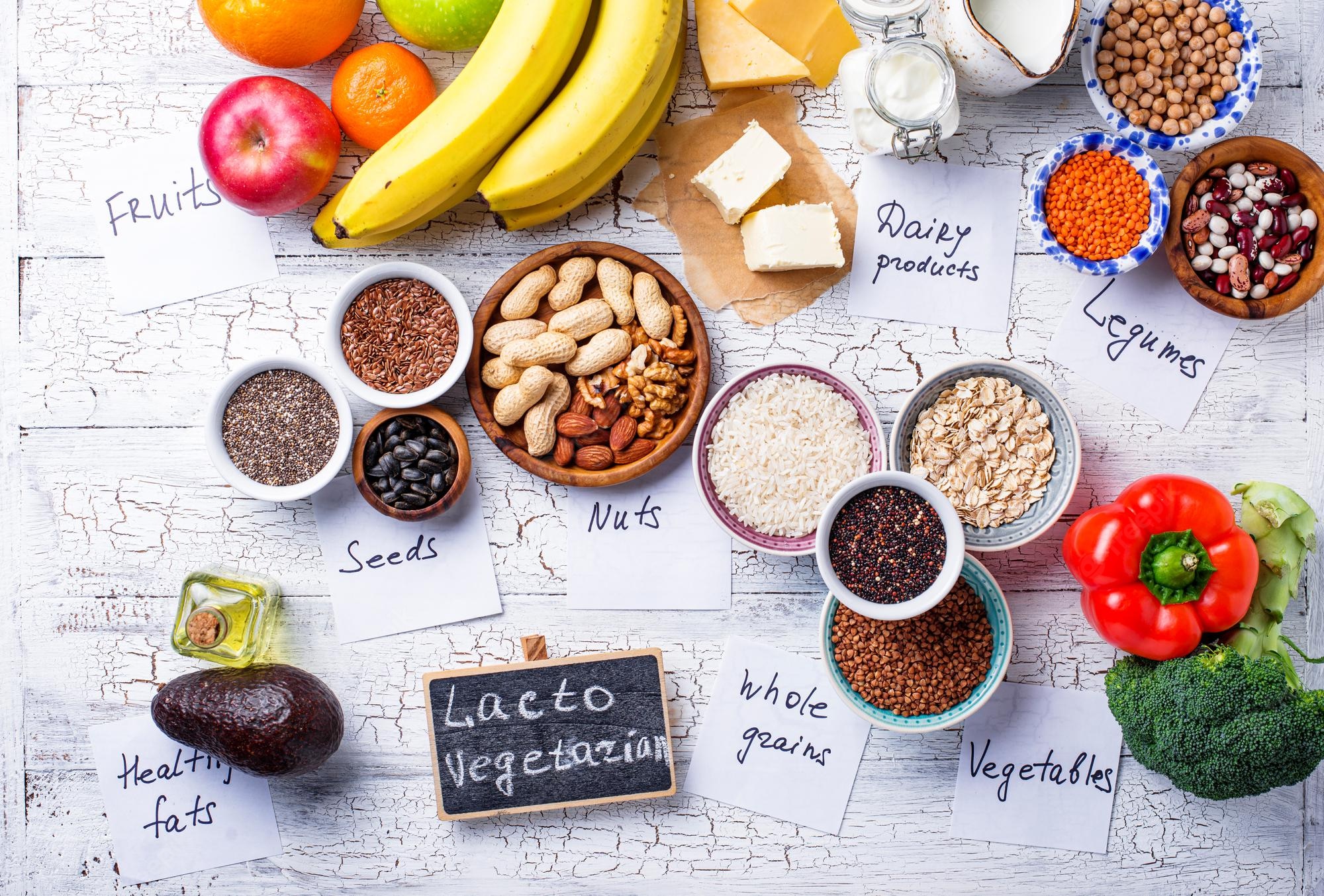
The Pritikin is a low-fat diet that's high in fiber and was developed in late 20th century. It is a popular diet that has been recommended by the United States Department of Agriculture (USDA) and the World Health Organization (WHO). It promotes the consumption of fresh vegetables, fruits, nuts, seeds, and legumes, and limits high-fat foods. Regular exercise, weight training, stretching are all part of the plan. The diet is also aimed at lowering blood pressure, cholesterol, and obesity.
While the Pritikin Diet may not be right for everyone, it can help those who are looking to lose weight and improve their cardiovascular fitness. The Pritikin diet has been shown to reduce cholesterol, lower blood pressure, reverse metabolic syndrome, and increase blood flow. People who adhere to the diet are able lose weight and lower their risk of stroke and heart attack.
The Pritikin Diet has been praised by the World Health Organization and the Food and Agriculture Organization. Its primary function is to reduce cholesterol and blood glucose. It encourages you to eat a variety healthy plant foods. However it also suggests eating more plant proteins than animal protein. For those who require sufficient protein to function properly, this may pose a problem. Pritikin dieters are advised to limit red meat intake to once per month.
While originally designed to combat heart disease, the Pritikin Diet has been adapted to treat chronic conditions. The approach is still based on the same principles. It encourages whole grains, fresh fruits, vegetables, and a variety fiber-rich foods like nuts, seeds, beans, and legumes. It also includes stretching and exercising, which are proven to improve metabolism and aid weight loss.

The Pritikin diet is designed to be low-fat, high-fiber, and high-carb. It also includes plenty of fresh fruits and veggies, whole grains, legumes, and whole grains. It discourages consumption red meat, eggs, or white flour.
FAQ
What is the most healthful lifestyle?
Healthy lifestyles include eating healthy food, regular exercise, good sleep, and avoiding stress. You can live a long and healthy lifestyle if these guidelines are followed.
Small changes to your diet or exercise routine can help you start losing weight. If you're looking to lose weight, walk for 30 minutes each morning. For more activity, you can try swimming or dancing. You can also sign up for an online fitness program like Strava or Fitbit to track your activity.
What is the difference among a virus or bacterium and what are their differences?
A virus is an organism microscopic that can't reproduce outside its host cells. A bacterium can be described as a single-celled organism which reproduces by splitting in two. Viruses can be as small as 20 nanometers, while bacteria can grow up to 1 micron.
Viruses can be spread by contact with bodily fluids containing infected substances, such as saliva, urine and semen. Bacteria are usually spread through direct contact with contaminated objects or surfaces.
Viral infections can also be introduced to our bodies by a variety of cuts, scrapes or bites. They can also be transmitted through the eyes, nose, mouth, ears, vaginal, rectum, and anus.
Bacteria can get into our bodies through cuts, scrapes and burns, insect bites, or other skin breaks. They may also enter our bodies from food, water, soil, dust, and animals.
Both bacteria and viruses can cause illness. However, viruses cannot reproduce within their hosts. They can only infect living cells and cause illness.
Bacteria can grow in their hosts and cause disease. They can invade other areas of the body. Antibiotics are needed to eliminate them.
How can my blood pressure be controlled?
Find out the causes of high blood pressure first. Next, you must determine the cause and take steps to decrease it. This could be as simple as eating less salt, losing weight (if necessary), or even taking medication.
Make sure you're getting enough exercise. Try walking if you don’t find the time.
You should join a gym if you are unhappy with your exercise routine. It's likely that you will want to join a gym with other people who are working towards the same goals as you. It is easier to adhere to a fitness routine when someone else will be there with you.
Statistics
- According to the 2020 Dietary Guidelines for Americans, a balanced diet high in fruits and vegetables, lean protein, low-fat dairy and whole grains is needed for optimal energy. (mayoclinichealthsystem.org)
- According to the Physical Activity Guidelines for Americans, we should strive for at least 150 minutes of moderate intensity activity each week (54Trusted Source Smoking, harmful use of drugs, and alcohol abuse can all seriously negatively affect your health. (healthline.com)
- In both adults and children, the intake of free sugars should be reduced to less than 10% of total energy intake. (who.int)
- Extra virgin olive oil may benefit heart health, as people who consume it have a lower risk for dying from heart attacks and strokes according to some evidence (57Trusted Source (healthline.com)
External Links
How To
Ten tips for a healthy lifestyle
How to lead a healthy lifestyle
We live in a fast world where we don't get enough sleep, eat too much, drink too much alcohol and smoke cigarettes. We don't take care of our body's health properly.
When you work full time and have to balance your exercise and diet regimens, it can be hard to create a healthy lifestyle. Stress can make it more difficult if your mind is telling you that you cannot handle the situation anymore. This makes it all the more difficult.
You should feel something is wrong with you body. Talk to your doctor about your condition. If there are no signs of something abnormal, stress from your job could be the cause.
Some people think that they are lucky because their jobs allow them to go to gym regularly or they have some friends who help them to keep fit. These people are truly lucky. These people have no problems. They control everything. I wish every person could be like them. Unfortunately, many people are not able to balance their work and personal lives. Many people fall prey to bad habits, which can eventually lead them to developing diseases like heart disease, diabetes and cancer.
These tips might help improve your lifestyle.
-
You should get 7 hours of sleep per night minimum and 8 hours maximum. It includes sleeping in the correct positions and avoiding caffeine before bed. Caffeine blocks the melatonin hormones making it hard to fall asleep. Make sure your bedroom's dark and clean. Make sure that you use blackout curtains especially if you are working late at night.
-
Eat healthy. Have breakfast every morning. Avoid sugary foods, fried foods, and white breads. Lunch should include fruits, vegetables, and whole grains. It is recommended that afternoon snacks be high in fiber and protein, such as nuts and seeds, beans, fish, and dairy products. Avoid unhealthy snacks like chips, candies, cookies, cakes and sodas.
-
Drink lots of water. We don't have enough. Water helps us burn more calories and maintains our skin's youthfulness. It also flushes toxins out of our bodies and improves our digestion. Drinking six glasses of liquid daily will help you lose weight quickly. Checking the color of urine is a good way to gauge your hydration. A yellow urine color indicates that you are dehydrated. An orange urine color means that you are slightly dehydrated. Pink urine means that your hydration level is normal. Red urine means that you are overhydrated. Clear urine means that your urine is highly-hydrated.
-
Exercise – Regular physical activity is proven to improve energy levels, reduce depression, and even help you feel happier. Walking can be a great way to improve your mood. Walking may appear easy but requires concentration and effort. Your brain must be able to focus on the act of walking while you breathe slowly and deeply. A brisk walk for 30 minutes can burn between 100 and 150 calories. Slowly build up and start slow. Stretching is key to preventing injuries.
-
Positive thinking is vital for mental health. When we think positively, it creates a happy environment within ourselves. Negative thoughts drain energy and can cause anxiety. You can stay motivated by thinking about what you want to accomplish. Reduce the number of tasks you have to do in order to feel less overwhelmed. You will fail occasionally, but you can always get up and try again.
-
It is important to learn how to say no. We are often so busy, that we don't realize how much time we spend on unimportant tasks. It is important to be able to say No when needed. Not saying "no" is rude. You are simply saying "no" to something. There will always be another way to do the job. Set boundaries. Ask for help. You can also delegate this task to another person.
-
Take care to your body. Healthy eating habits will increase your metabolism and help you lose weight. Avoid eating anything heavy or oily as they can raise cholesterol levels. You should eat three meals and two snack each day. You should consume around 2000 - 2500 calories per day.
-
Meditate - Meditation can be a great stress reliever. Relax your mind by sitting still with closed eyes. This exercise will improve your ability to think clearly and help you make decisions. Practicing meditation regularly will make you calmer and happier.
-
Breakfast is the most important meal in the day. Skipping breakfast can cause you to eat too much during lunch. As long as you have breakfast within one hour of waking up, it is not too late. Eating breakfast boosts your energy and helps you manage your hunger better.
-
Make sure you eat clean food. Food has a greater impact on your mood than you realize. Avoid junk food, artificial ingredients and foods that are high in preservatives. These products can make you feel hungry and acidic. A variety of fruits and vegetables is rich in vitamins, minerals and other nutrients that can help improve overall health.
-
***